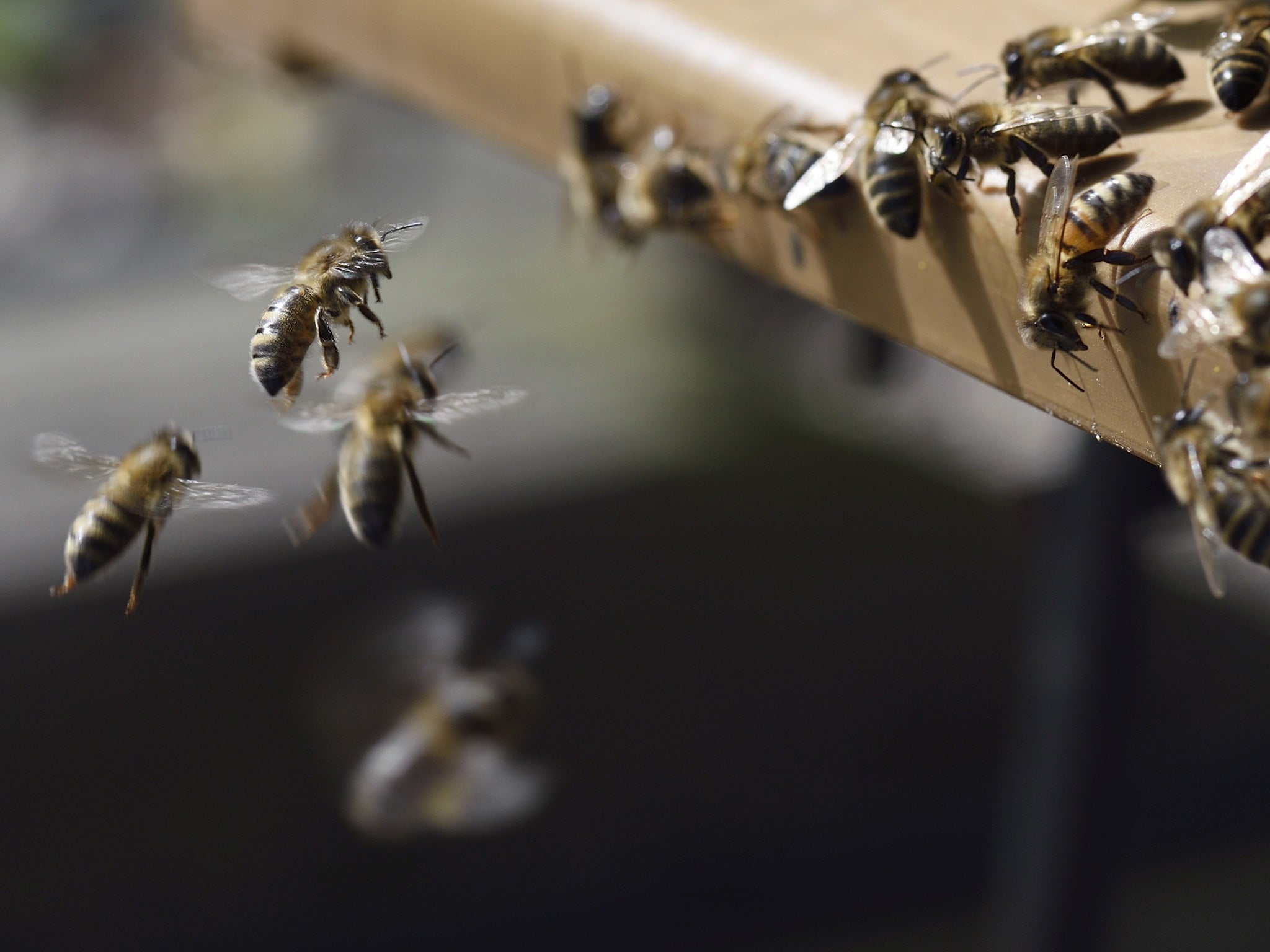Bees are becoming addicted to the pesticides that are killing them off
The bees were previously thought to simply be unable to detect the pesticide

Bees may have grown addicted to pesticides with similarities to nicotine, significantly harming populations, according to a pair of new studies.
In a new study published in the journal Nature, researchers from Newcastle University showed that bees have developed a preference for sugar solutions that were combined with the widely used pesticides imidacloprid and thiamethoxam, indicating that they can grow to be hooked on the chemicals.
Also published in the same edition of the journal was a study that has been widely approved as the most emphatic evidence yet that the group of pesticides, neonicotinoids, are harming wild bee populations.
In pictures: Thousands of bees swarm Topshop
Show all 8Scientists from Lund University in Sweden undertook the first successful “real world” experiment on the effect of neonicotinoids on bees and their research indicated that wild bee populations halved around fields that had been treated with them.
Bumblebee hives were seen to stop growing and produce significantly less queens where the chemical was used. The study however did indicate that the more sturdy honeybees, which are used to pollinate many types of crop, were not affected.
Neonicotinoids are lab-synthesised pesticides based on the structure of nicotine. They are widely used to treat crop seeds and work through being absorbed by the growing plant and attacking the nervous system of insect pests that try to feed on them.
The results of the respective tests are particularly important considering that a current EU moratorium on the use of a group of neonicotinoids on certain crops had been criticised by the UK government after previous tests had been shown to be inadequate.
Dr Geraldine Wright, from Newcastle University and author of the first study, said: “We now have evidence that bees prefer to eat pesticide-contaminated foods” and that “like nicotine, neonicotinoids may act like a drug to make to make food containing these substances more rewarding.”
Dr Maj Rundloef of Lund University, project coordinator of the second study said: “The most dramatic result that we found was that bumble bee colonies almost didn’t grow at all at… the treated sites compared to the control sites.”
David Gouldon, a bee expert at Sussex University, not involved in the research, told the Guardian that the findings were hugely significant:
“At this point in time it is no longer credible to argue that agricultural use of neonicotinoids does not harm wild bees.”
He said that the papers were “a major step forward in clarifying the neonicotonoid debate… This was the first fully-field realistic, well-replicated trial so far, an impressive piece of work.”
However Nicky von Westenholz, chief executive of the Crop Protection Association which represents companies Bayer and Syngenta, two of the biggest neonicotinoid producers, said: “The latest studies in Nature must be seen in the context of an ongoing campaign to discredit neonicotinoid pesticides, regardless of what the real evidence shows.”
He added that “Bayer CropScience is pleased to see the Swedish study demonstrates yet again there is no effect of neonicotinoids on honeybee colonies in realistic field conditions, consistent with previous published findings.”
Subscribe to Independent Premium to bookmark this article
Want to bookmark your favourite articles and stories to read or reference later? Start your Independent Premium subscription today.

Join our commenting forum
Join thought-provoking conversations, follow other Independent readers and see their replies